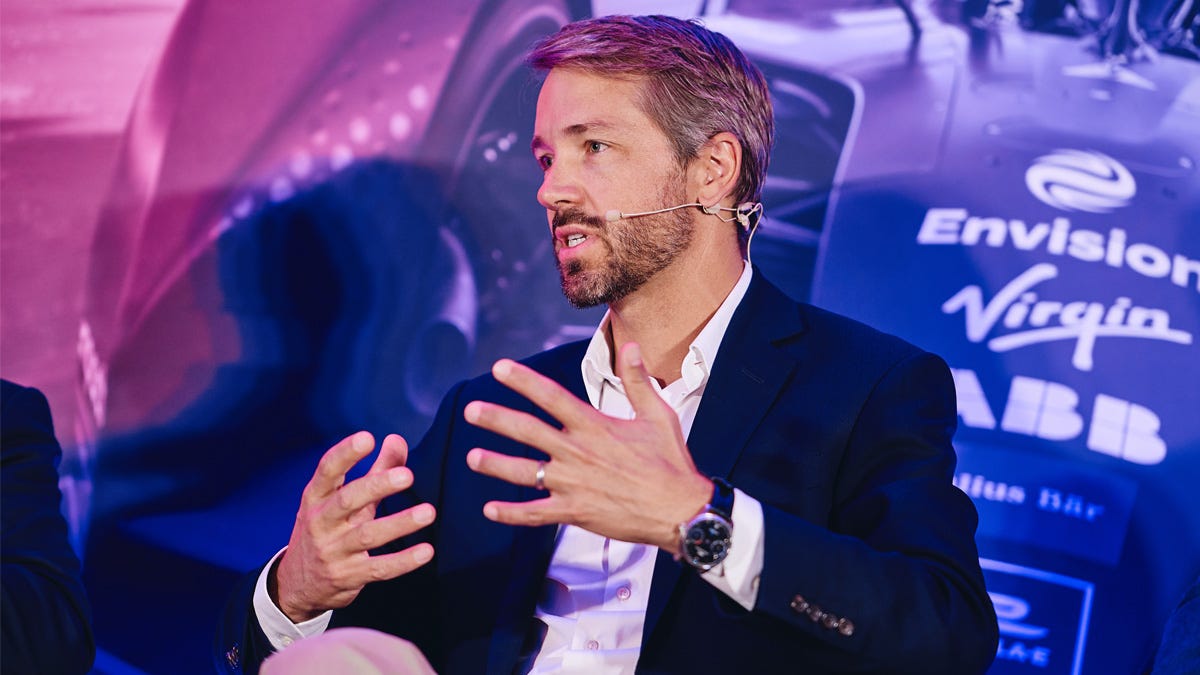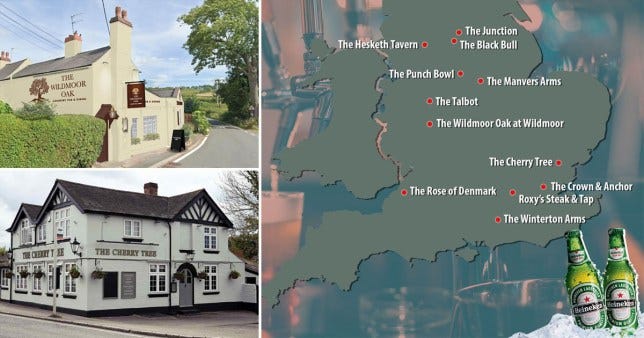The UK: An AI juggernaut in the making?
The business news that matters.
Hello and welcome to the latest edition of Off to Lunch…
The UK’s tech scene has had a massive injection of confidence with today’s funding announcement for self-driving car start-up Wayve. The new headline investor in the Cambridge University spin-out is artificial intelligence firm Nvidia in a Series C round that is Europe’s largest AI deal to date at $1.05bn (£837.3m).
The company was co-founded by Alex Kendall in 2017, who joined us on the Business Leader Podcast in December to discuss the company’s growth and challenges. The conversation takes on an interesting new light given today’s news of the raise…
Wayve has been described as a seven-year overnight success. Before this funding round it had raised money from A-list investors including Sir Richard Branson, Baillie Gifford, Balderton Capital and online grocer Ocado.
Its tech has also been put to the test on the streets of London by Bill Gates:
As a business that has a presence in the UK and US, Kendall and Wayve are in a great position to provide insight into the differences between the two markets, both in terms of team culture and the appetite of investors. He says they’ve tried to get the best of both worlds:
Every full-time member of Wyve is an equity holder of the company. I think Silicon Valley does a really good job at providing significant ownership to employees and that's not often the case with UK businesses.
You see a different risk appetite often play out between European and US investors. I think there are some exceptions and it's great to see so many of the UK investors that have backed us start to have appetite to back ambitious deep tech companies.
I'm passionate about that and I'd love to see more of it, but that is that is certainly an area where the US remains ahead today.
The company’s head office is in London and has remained in the UK for a very specific reason:
Not only have you got great investment and road infrastructure in the UK, but it's just incredibly complex and challenging to be able to drive on UK roads. A lot of the cities have medieval origins. It's far from the grid-like streets and wide boulevards that you see in the United States, for example.
People say: ‘Why don't you go to a desert city and start there?’ I say this quite often, but if you can learn to drive in London, you can drive in many places around the world. It's challenged us to build technology that is intelligent, capable and scalable.
Kendall is careful to manage expectations around the technology and won’t give an answer when posed with the question of when we’ll see self-driving cars on roads: This doesn’t mean that he’s not clear with his team about targets, though:
I think you've got to have a clear belief around where you're going. What I try and do as CEO is set a vision and [show] where we want to go, but empower the team to go and build towards that.
I don't want to be in a position where I'm dictating the path because I'm only one brain and we want to harness the collective intelligence of people that are much more expert than I am in their respective fields.
Ultimately, better ideas are going to come up along the way or things are going to change or we learn new things and discover problems that were unknown unknowns, and they will require us to adapt.
In the words of the co-founder of lastminute.com and noted unicorn builder, Brent Hoberman: “I hope that Wayve acts as a beacon to other international founders to show how a once contrarian approach can attract the world’s best brains and capital, and how the UK can focus on technology opportunities and encourage broader entrepreneurship across the country to drive more growth.”
Podcast…
The latest episode of the Business Leader podcast focuses on one of the most famous brands on the planet. Josh Bayliss was appointed as the chief executive of Virgin Group by Sir Richard Branson in 2011.
He works with an array of Virgin branded businesses, 70,000 employees but just one shareholder – the Branson family. It is a unique job with unique challenges and unique opportunities. This is the story behind the Virgin brand and how Bayliss ended up running it…
You can listen to the episode on Substack here, Spotify here and Apple here
Other stories that matter…
1. Sifted has taken a deep dive into the accounts of some of the UK’s best-funded scale-ups to see if they are profitable. Out of the 10 put under the microscope, raising upwards of $871m, only four of them are in the black. You can read more here.
2. The Spring sun may finally be out today but the dreary weather recently has hit UK retail sales and spending, according to industry figures. Retail sales dropped 4 per cent in April compared to the same time last year. Data from Barclays also showed that Brits have cut back on eating and drinking out as almost half of the 2,000 customers polled said they would be cutting back on discretionary spending. You can read more here.
3. We’ve already covered one of the Cambridge University spin-out success stories in Wayve, but the university has said that it aims to double the number of start-up companies spun out by academic founders. The institution’s pro-vice chancellor for innovation has penned an article for The Times on how it aspires “to be the world leader in creating science-backed businesses”. You can read more here.
4. A forecast from property group Savills has warned that we may be on the verge of a housing crisis. Without political intervention, the company warns that the number of new homes being built in England could fall to half the government’s target. This could be interesting to watch in the run-up to the General Election, with both Labour and the Conservatives pledging to build 300,000 homes per year to make up for the shortfall. You can read more here.
5. Safeway was a British staple and one of the country’s biggest supermarket chains…and then it disappeared. The BBC has released a podcast featuring interviews with the chain’s former directors and suppliers and analysis from figures close to the action to find out the real story. You can listen to it here.
And finally…
There is some good news for the UK hospitality sector, with the news that Heineken is investing close to £40m into its Star Pubs & Bars chain. The company will reopen over 60 pubs, creating more than 1,000 jobs.
The Metro has created a handy map with the first few pubs that are being brought back to life below. You can read the full story here.
Thanks for reading. If you enjoy Off to Lunch then please share it with others and spread the word. If this newsletter was shared with you then please sign-up below to get Off to Lunch sent directly to your inbox







